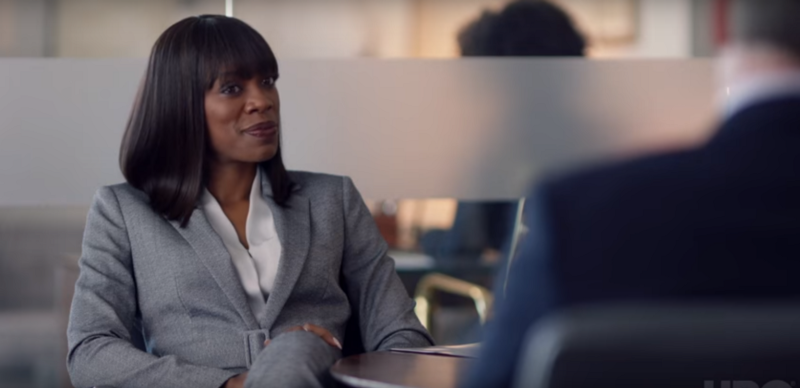Why I am fascinated about work and careers
When it comes to Issa Rae’s “Insecure” there are so many thoughtful and insightful reviews of each episode. Whether in bite-sized tweets, lengthy articles or poignant group dialogue recorded on video, each brings a unique perspective. In some way, each review dissects the character development, plot line, story and themes that resonate with us the most. The Season 2 finale (which was a same-day rating record breaker for the show) was no different, generating dialogue mostly centered around different relationships. And yet, the scenes that I can’t shake had less to do with romance — and more to do with work.
In the finale, when Molly (brought to life so well by Yvonne Orji) sits before senior staff at her firm, she has come off of promising interviews with new law firms. They share that they are aware that she’s been interviewing, and they want her to know how much her work at the firm, is valued and desired. So, they give her a certificate. A certificate. Not the raise she previously presented justification for, but a certificate.
That beautiful, shocking, montage of the choose-your-adventure of love and marriage with Issa and Lawrence? It was quality. The mature and honest conversation preceding the montage between the characters? Again quality. All of it was so well done. But that work scene was emblazoned in my mind.
Because I am fascinated with work and careers.
In that moment Molly’s work becomes front and center. This work that Molly has spent most of her time working towards with every ounce of her education, time and energy is at stake. The thing where she uses her gifts and talents, the thing that she prioritizes, and dedicates herself to wholeheartedly. The thing for which she modifies her colloquialisms and presentation, in order to succeed. The thing that pays for her nice place, and beautiful things. Her work.
Molly’s bosses explaining the value of the certificate. Photo credit: HBO YouTube
Our work and career is where many of us place most of our time, and much of our value. Our success with work can shape the way we see ourselves. In fact entire life narratives can be told through the lens of work. People will move, leaving behind all they know and love, for better work. We ask small children what they want to do for work when they are very young. We praise and admire those who have reached the top of their field. Our education system was developed to support hiring needs for different industries. Even when we are “off” work we are most likely interacting with someone who is on-the-clock.
For a lot of us we spend more time with people we work with, than we do our loved-ones. With globalization, competition and the quest for security, our governments, families, and industries use work to shape the the futures we desire.
Yvonne Orji playing “Molly” on HBO’s Insecure. Photo credit: HBO
Work is big.
But what also fascinates me is that it is so, so small. As we often do, we look to those at the end of their lives for perspective on how to live our own. In a popular article turned book, Bonnie Ware lists the regrets of the dying. And one regret she documents is not “working so hard.” Respondents described regret for choosing career over quality time with loved ones.
Perhaps this is why we search for the appropriate formula for work and “life” that brings the most desired outcomes, and generates the fewest regrets.
Despite the allure and interest of what makes the Millennial generation unique — there is more evidence than not, showing that Millennials’ desires at work are not really that different from other generations. According the 2002 Human Capital Edge, by Bruce Pfau, Ph.D. and Ira Kay, Ph.D. research shows that our satisfaction at work centers around our ability to answer “Yes” to four questions:
Is this a winning organization I can be proud of?
Can I maximize my performance on the job?
Are people treated well economically and interpersonally?
Is the work itself fulfilling and enjoyable?
This leads to another thing that fascinates me about work and I constantly think about: how do people like Molly fare at being able to answer, “Yes,” to those four questions? People who are in work environments that were not designed with them in mind, but still benefit greatly from their contributions. What can they do to find that fulfillment? And how are workplaces ensuring that talent like Molly’s is rewarded with something more than a certificate?



